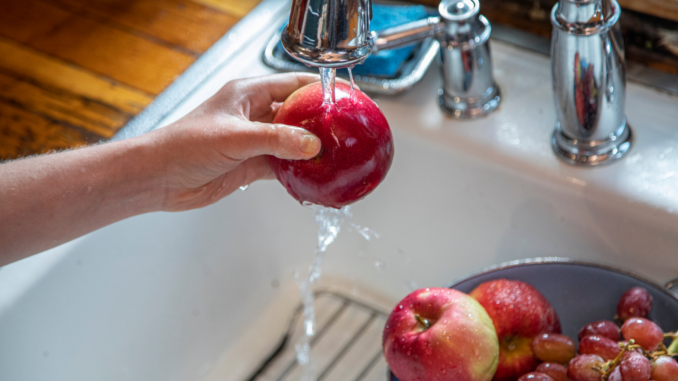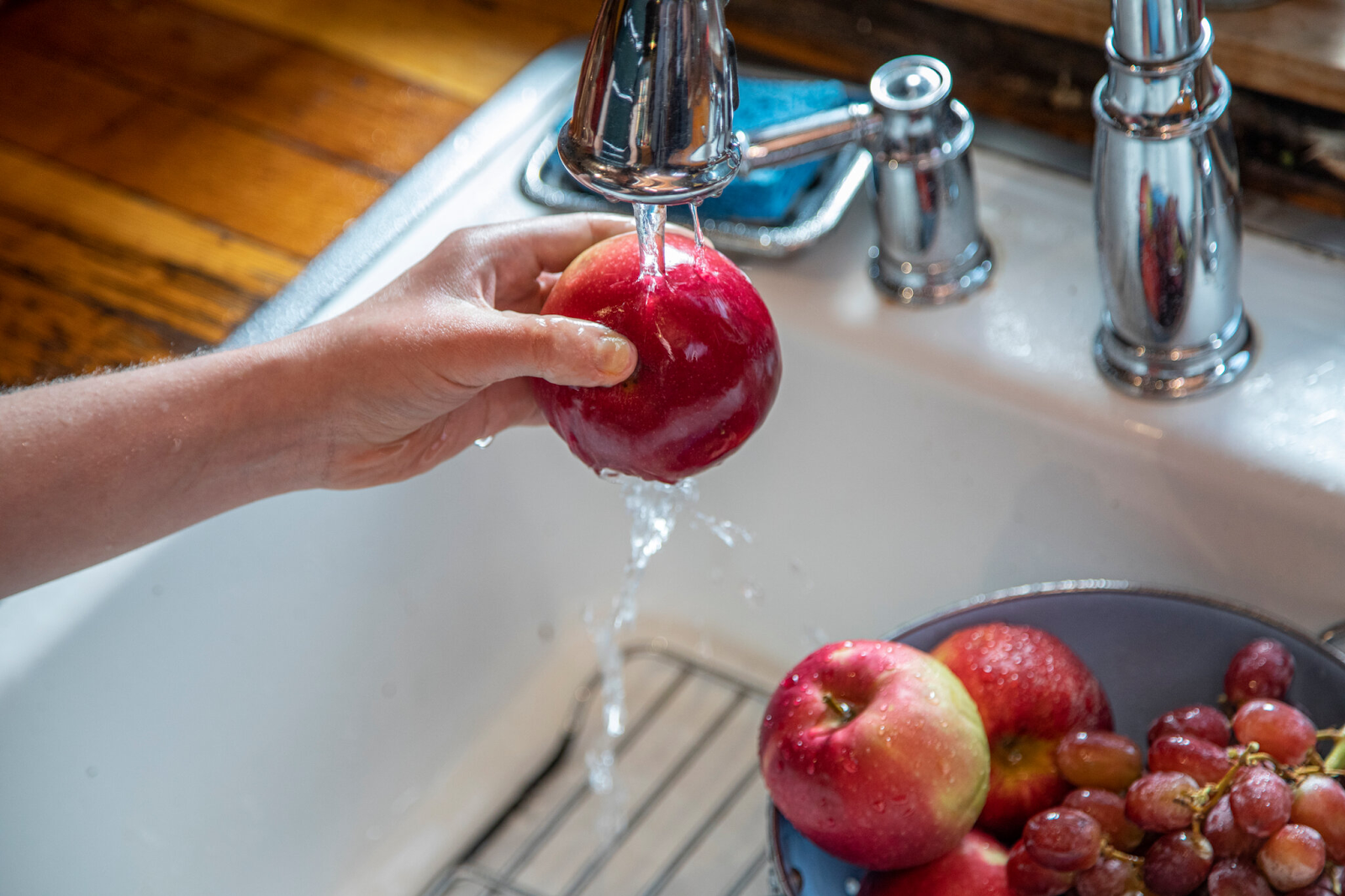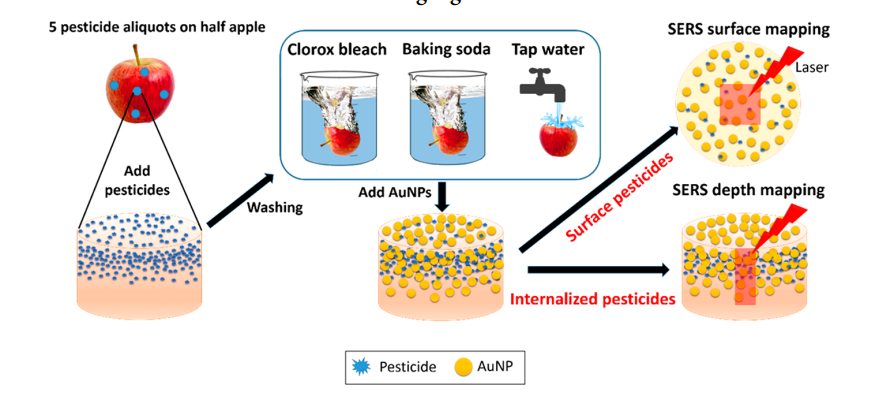
Water alone is not enough
Unsubscribe | Report as spam | Change email preferences
This is how men can remove pesticides from foods
Pesticides…
… toxic chemicals designed to kill pests.
Give credit where credit is due; agricultural production has skyrocketed thanks to pesticides.
Hundreds of times more products are produced than ever before.
It’s a good thing… normally.
But what about human health?
Does anyone care about that?
According to the Environmental Protection Agency, approximately 1.1 billion pounds of pesticides are used annually in the US.
1.1 BILLION POUNDS…
Words fail me…
Big Agriculture sprays so many pesticides on the food we eat that the people who spray them have to wear layers of protective clothing.
Do they think that what kills animals won’t harm people?
That’s nonsense.
Almost all conventionally produced food is covered in pesticide residue.
And unfortunately, they get into our bodies when we eat them.
Some pesticides have been linked to health problems such as cancer, birth defects, endocrine disruption, and neurological problems.
Long-term pesticide exposure has also been linked to decreased fertility and sexual performance in men.
So what should you do?
The most obvious solution is to buy organic food.
Because organic foods are produced without the use of synthetic pesticides – this solves the problem to a great extent.
But I know organic food is, unfortunately, expensive – not everybody can afford it on a regular basis.
There is another solution.
That’s what today’s study is about.
This study was conducted at the University of Massachusetts. It was published in the Journal of Agricultural and Food Chemistry.
Pesticides accumulate mainly on the outer skin of food, so washing is one way to get rid of them.
But water alone is not enough.
So, the researchers conducted an experiment to see whether commercial and homemade washing agents remove pesticides.
“Removal of pesticide residues from fresh produce is important to reduce pesticide exposure to humans. This study investigated the effectiveness of commercial and homemade washing agents in the removal of surface and internalized pesticide residues from apples.”
They sprayed apples with a pesticide often used in agriculture and washed them in 3 different ways:
1- Tap water
2- Water + Clorox bleach
3- Water + baking soda solution
Baking soda solution was MUCH more effective than water or Clorox (you shouldn’t wash your food with Clorox anyway) at getting rid of pesticide residues.
“Surface pesticide residues were most effectively removed by sodium bicarbonate (baking soda, NaHCO3) solution when compared to either tap water or Clorox bleach. Using a 10 mg/mL NaHCO3 washing solution, it took 12 and 15 min to completely remove thiabendazole or phosmet surface residues, respectively, following a 24 h exposure to these pesticides, which were applied at a concentration of 125 ng/cm2.”
Baking soda degraded the pesticides and facilitated their removal from the fruit.
“The NaHCO3 method is more effective in removing surface pesticide residues on apples. In the presence of NaHCO3, thiabendazole, and phosmet can degrade, which assists the physical removal force of washing.“
However, one of the 2 pesticides used penetrated well into the apple when left for 24 hours and, therefore, could not be removed with the baking soda solution.
“LC−MS/MS results showed, however, that 20% of applied thiabendazole and 4.4% of applied phosmet had penetrated into the apples following the 24 h exposure. Thiabendazole, a systemic pesticide, penetrated 4-fold deeper into the apple peel than did phosmet, a non-systemic pesticide, which led to more thiabendazole residues inside the apples, which could not be washed away using the NaHCO3 washing solution.”
So we’re back to the beginning a little bit.
It’s best to buy organic.
Although baking soda is a great way to remove some pesticides, it may not work for all.
The Environmental Working Group (EWG) has a list called “dirty dozens.”
This list has revealed the foods that are sprayed with pesticides the most.
Dirty dozens
- Strawberries
- Spinach
- Nectarines
- Apples
- Grapes
- Peaches
- Cherries
- Pears
- Tomatoes
- Celery
- Potatoes
- Sweet Bell Peppers
I recommend buying at least those organic – the others don’t get sprayed as much.
If this is not feasible, washing your food with baking soda may still be a great solution.
—-Important Message—-
This food ingredient should be outlawed — how much did you eat today?
This bad ingredient is in MOST of today’s foods…
…it builds up in the bloodstream and travels to different parts of the body…
It builds up in a man’s Leydig cells in the testicles, making his testosterone plummet…
It destroys the beta cells in the pancreas, so men become insulin resistant and get diabetes…
…and it builds up in a man’s penile chambers, blocking good blood flow and causing “rockiness” problems.
So tell me — have you been warned about this bad food ingredient yet or how to keep it from building up in your bloodstream?
———-




